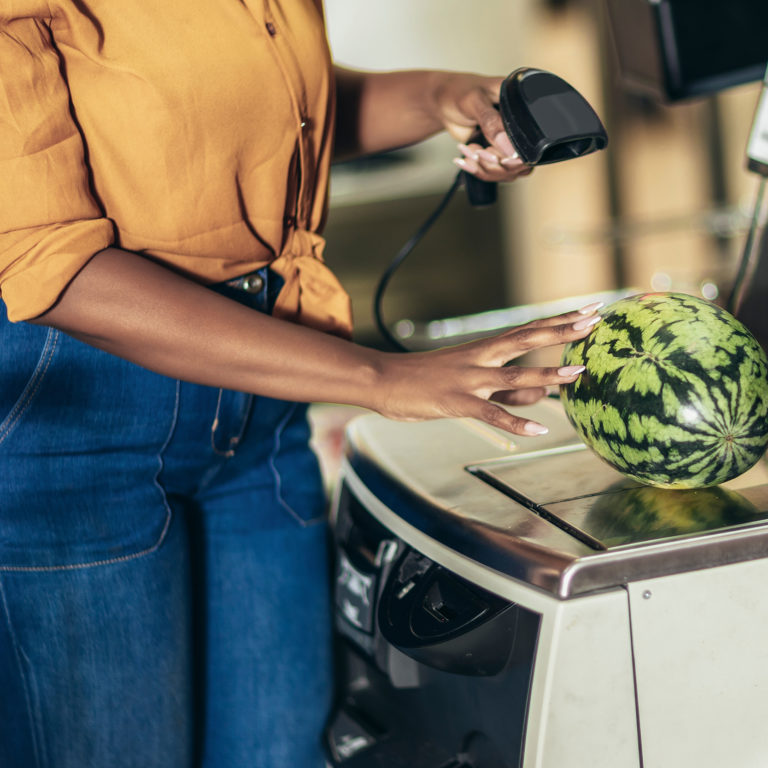Living in a food-insecure household may increase the risk for disordered eating. Assistant Professor Rachel Goode, whose interests in social work and eating disorders converge at the UNC Nutrition Research Institute, has published a research article on the relationship between eating disorders and people participating in the Supplemental Nutrition Assistance Program (SNAP) particularly during COVID-19.
Food insecurity is defined as a lack of consistent access to enough food for a well-nourished and healthy life. SNAP is the largest federal intervention to reduce food insecurity and was designed to provide nutrition benefits to supplement the food budgets of families who have a low income and are experiencing poverty. Currently, the program supports about 1 in 7 Americans and has aided in reducing food insecurity by as much as 30%. Most families, however, run out of their benefits before the month is over.
At the onset of the COVID-19 pandemic food insecurity rates nationwide increased from 25.9% to nearly 47%. Eating behaviors were a challenge to navigate during COVID-19, and many participants in this study reported an increase in emotional eating, late-night snacking, and the overconsumption of junk food to cope with social isolation and the unpredictability of the pandemic.
Limited research has explored the experiences navigating eating behaviors as a SNAP participant, and for those who are also in a larger body. Thus, the purpose of the study is to understand the experiences those in larger bodies faced managing SNAP, during COVID-19.
The study interviewed North Carolina adults who identified as SNAP recipients and had a BMI of or greater than 25kg/m2. The sample was mostly female and nearly one-third of participants identified as Black. In total, 16 people participated in 45- to 60-minute semistructured interviews.
Participants consistently identified not having enough SNAP benefits or money to meet their monthly needs. In fact, all study participants expressed running out of benefits before the end of the month and feeling stressed because they knew they would not have enough to last until benefits were re-administered. Participants also discussed experiences with emotional eating and loss of control around food. Factors affecting these episodes included COVID-19-related stressors and anxiety over not having enough food to last the month.
One study participant said, “I’ve learned to manage my SNAP benefits definitely much better, but it also still comes at a cost… It comes at me still buying food except these foods are just, they’re not good for you, but they’re inexpensive and they’re cheap and it’s something to put in me–and it’s something to stretch it out.”
The data from this study indicate that SNAP recipients in larger bodies were balancing not having enough benefits to purchase an adequate amount of food, experiencing loss of control and emotional eating, and centering the needs of children while managing their eating behaviors during COVID-19. The results of this study suggest that participants were likely experiencing societal-related pressure to lose weight and may be at risk for disordered eating and stigma-related mental health concerns, as well as experiencing stressors related to economic hardship. Due to the reports of binge and emotional eating behaviors in this study, future research is needed to assess the prevalence of DSM-5 diagnosed eating disorders (anorexia, bulimia, binge eating, AFRID and OSFED) in samples of SNAP participants.
Read the entire publication here.
Rachel W. Goode is an assistant professor at the School of Social Work and the Nutrition Research Institute and an adjunct assistant professor in the Center for Eating Disorder Excellence, Department of Psychiatry, University of North Carolina at Chapel Hill. Her research interests include developing, implementing, and evaluating equitable and community-engaged interventions to treat obesity and eating disorders.

